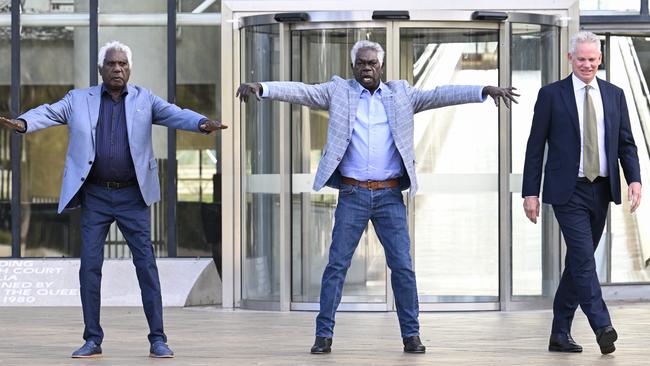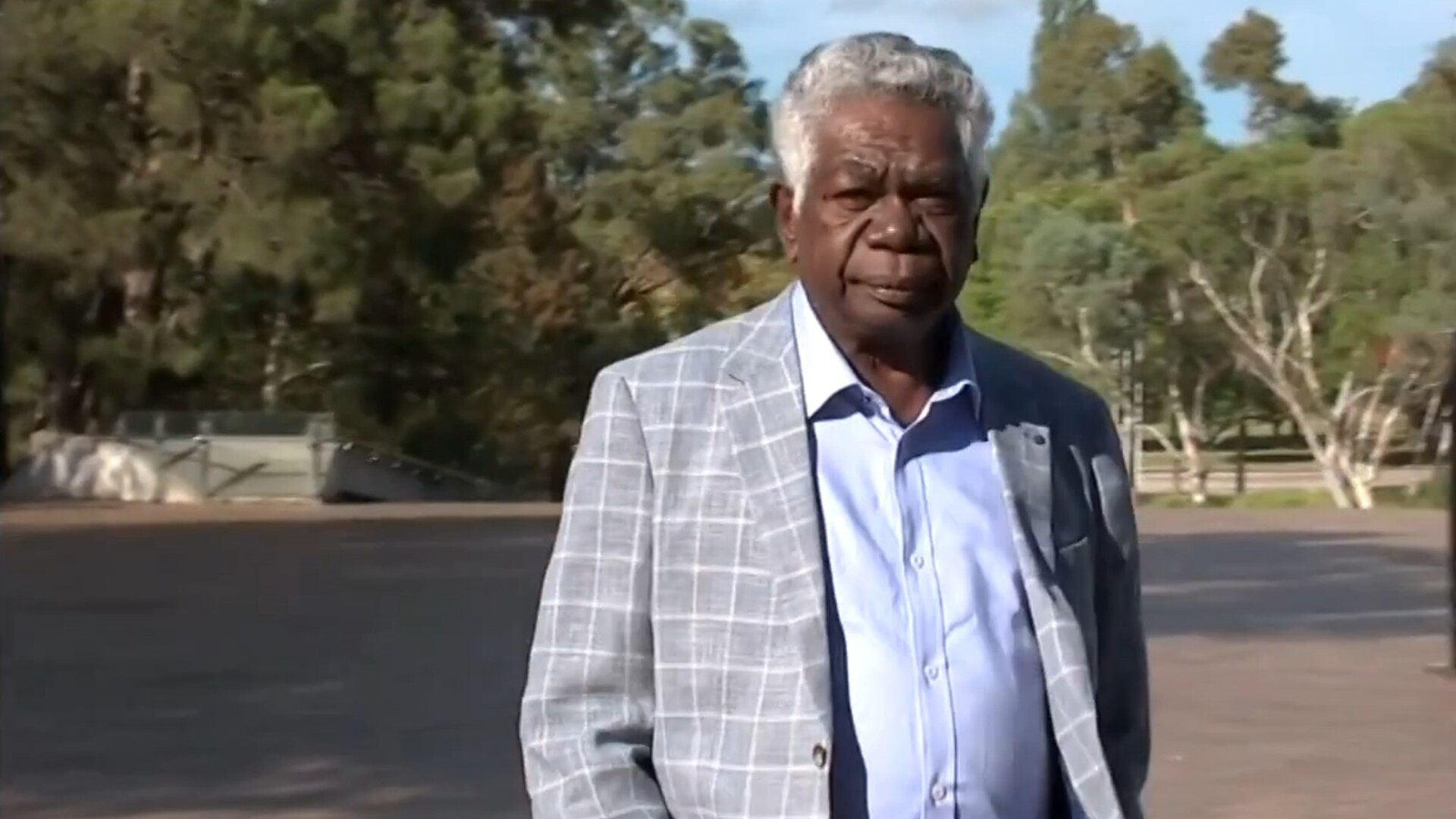Call for settlement framework in wake of Yunupingu native title ruling
The commonwealth’s exposure to billions in compensation warrants a serious exploration of how Australia can formally settle with its past, Indigenous leader Peter Yu says.

The commonwealth’s exposure to billions in compensation in the wake of the latest High Court victory for traditional owners warrants a serious exploration of how Australia can formally settle with its past and reset the relationship between Aboriginal and non-Aboriginal Australia, Indigenous leader Peter Yu says.
The High Court of Australia’s landmark ruling in the Yunupingu case on Wednesday that native title is property has prompted intense speculation about how the Albanese government will deal with a predicted wave of compensation claims.
The Yunupingu ruling makes the commonwealth not only liable for the historic decision to allow Swiss company Nabalco to mine bauxite on the Gove Peninsula in 1968 but also liable for other past decisions and activities that extinguished native title across the Northern Territory.
Native title lawyers say the decision has implications outside the NT but only for the commonwealth. It comes six years since the High Court’s Timber Creek decision made every government liable for past acts that altered or degraded traditional lands.
Professor Yu said it was logical to create a framework for settling outstanding disputes given the number and nature of court cases in recent years in which traditional owners’ rights had been upheld, and the expectation of more to come. There was also a range of unresolved matters between governments and Aboriginal and Torres Strait Islander people that did not relate to native title law, he said.
Australian National University First Nations vice-president Professor Yu agreed some people may call what he suggests a treaty, though he does not. The Yawaru elder, from Broome, believed it was worth considering a way forward that could avoid more court battles and ad hoc settlements.
“It would be an agreement that establishes a process whereby these claims are settled,” he said.
“The government would formally adopt a policy to try to settle such claims in a way that can expedite and save a lot of pain and money for people going through courts and challenging.
“It is but it isn’t a simple issue.”

National Native Title Council chair Jamie Lowe said a framework for resolving native title and other issues fast “makes complete sense” in part because court takes so long and costs so much. The Council had been seeking support for such a framework for about four years. The Yunupingu decision brings the commonwealth into a conversation that had until now mostly involved only the states, Mr Lowe said.
“Each time we make progress on this it inevitable becomes a political football,” Mr Lowe said.
“We need a level of maturity.”
Native title lawyers speculated on Thursday that agreements with native title holders that include a lump-sum payment as only a portion of the negotiated settlement could save the taxpayer billions in the wake of the landmark Yunupingu decision.
Ashurst Australia partner Tony Denholder said: “The commonwealth may attempt to resolve its liability by way of Indigenous Land Use Agreements with relevant native title groups or consider attempting a negotiated settlement similar to that reached by the WA government with the Noongar People.”
Former Western Australian Liberal premier Colin Barnett proposed the Noongar settlement to end more than a decade of litigation that was causing problems for developers, government and farmers while frustrating traditional owners who wanted a resolution.
The $1.3bn settlement comprised $600m to be paid into a future fund over 12 years, Crown land, jobs and economic development opportunities. Later, the McGowan Labor government struck a similar $447m deal to settle native title with Yamatji people of the midwest.





To join the conversation, please log in. Don't have an account? Register
Join the conversation, you are commenting as Logout